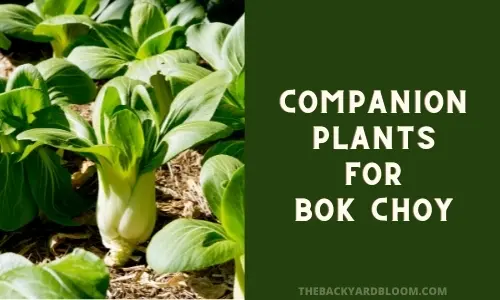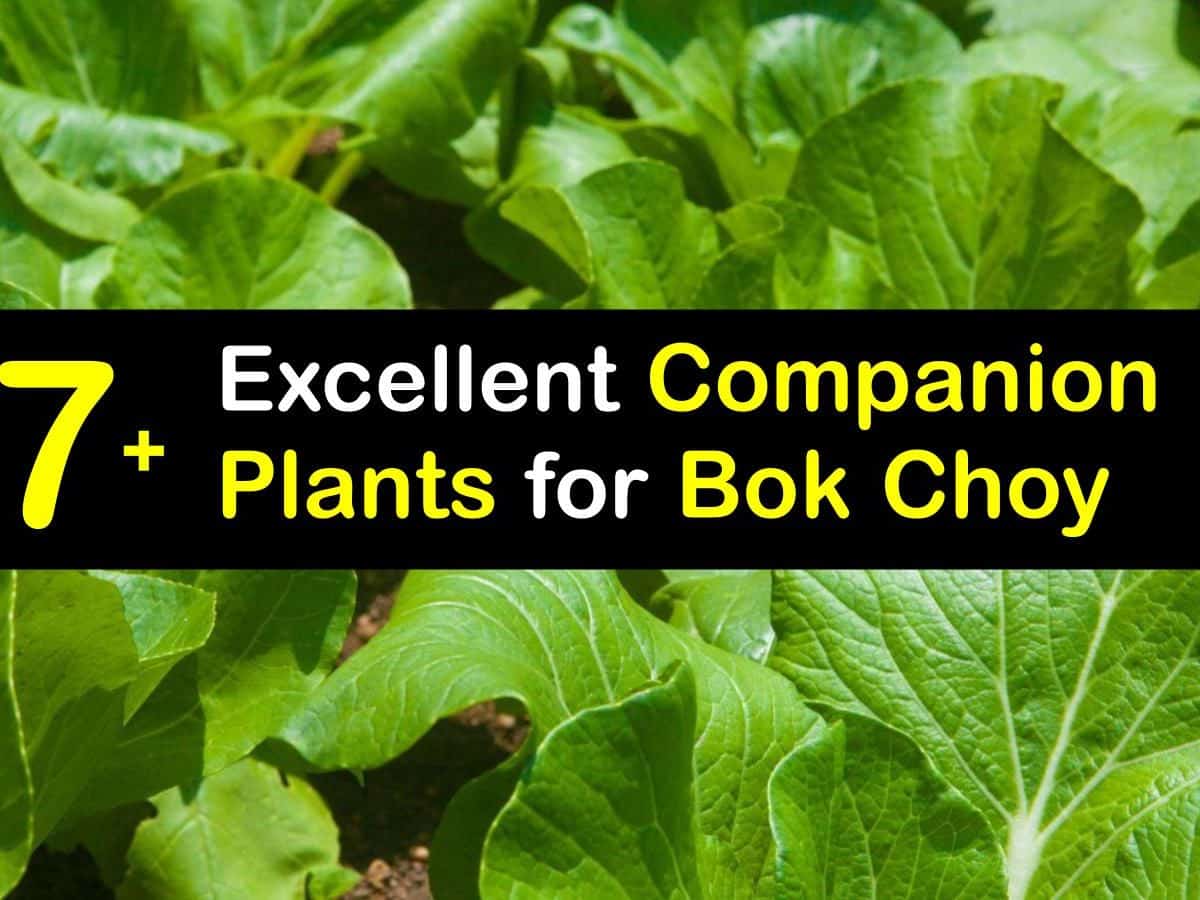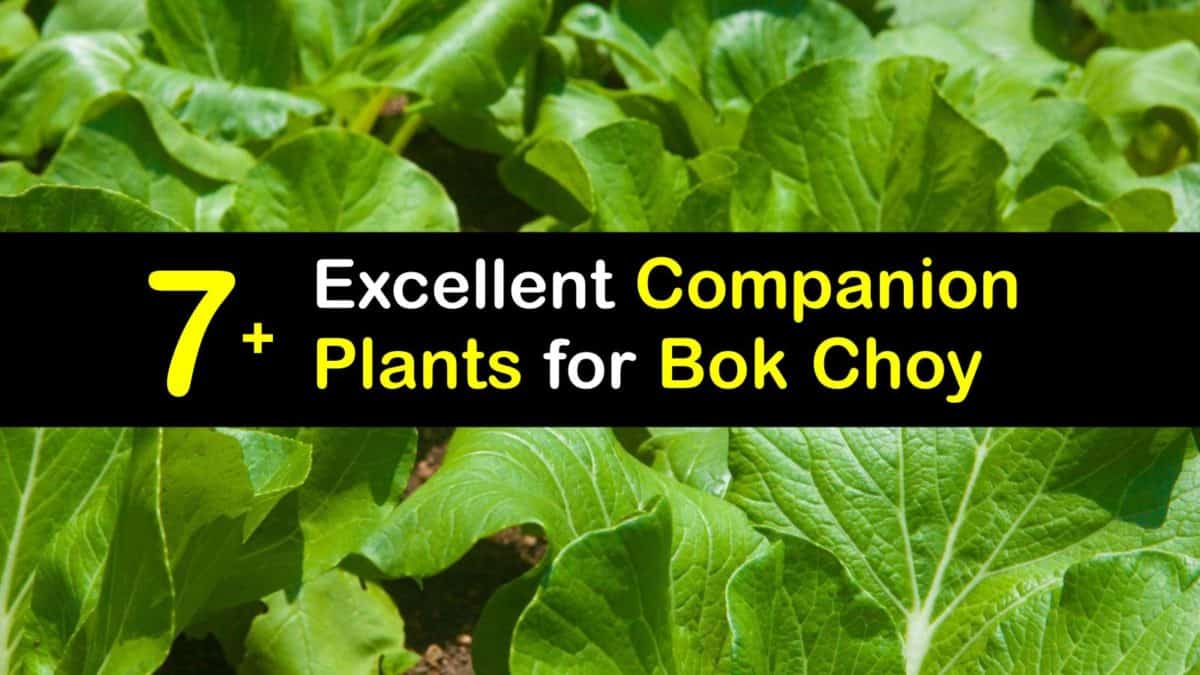The Ultimate Guide To Growing Pak Choi With Companion Plants
The Ultimate Guide to Growing Pak Choi with Companion Plants
Pak choi, also known as bok choy, is a delicious and nutritious leafy green vegetable that is easy to grow in your garden. It is a member of the Brassicaceae family, which also includes broccoli, cabbage, and kale. Pak choi is a cool-weather crop that prefers full sun and well-drained soil. It can be planted in the spring or fall, but it is important to avoid planting it in hot weather, as it will bolt (flower) and become bitter.
Pak choi is a relatively low-maintenance crop, but there are a few things you can do to help it grow its best. First, make sure to water it regularly, especially during hot weather. Second, fertilize it every few weeks with a balanced fertilizer. Third, thin the plants once they have reached about 6 inches tall to give them plenty of room to grow.
One of the best ways to improve the growth and yield of pak choi is to plant it with companion plants. Companion planting is a gardening technique that involves planting certain plants together for mutual benefit. Some good companion plants for pak choi include:
- Carrots: Carrots help to improve the flavor of pak choi and can also help to repel pests.
- Celery: Celery helps to deter pests and can also provide shade for pak choi in hot weather.
- Cucumbers: Cucumbers help to attract beneficial insects that prey on pests.
- Dill: Dill helps to repel pests and can also improve the flavor of pak choi.
- Herbs: Many herbs, such as mint, rosemary, and sage, can help to repel pests and improve the flavor of pak choi.
- Onions: Onions help to repel pests and can also help to improve the flavor of pak choi.
- Potatoes: Potatoes help to improve the flavor of pak choi and can also help to repel pests.
- Spinach: Spinach helps to deter pests and can also provide shade for pak choi in hot weather.
Avoid planting pak choi near other brassica crops, such as broccoli, cabbage, and kale. These crops are susceptible to the same pests and diseases, and planting them together can increase the risk of infection.
With a little care and attention, you can grow healthy and delicious pak choi in your garden. By planting it with companion plants, you can help to improve its growth and yield, and you can also deter pests and improve the flavor of your harvest.
Pak choi is a delicious and versatile vegetable that can be grown in a variety of climates. When choosing companion plants for pak choi, it is important to consider their growth habits and the nutrients they need. Some good companion plants for pak choi include:
- Onions: Onions help to deter cabbage moths and other pests that can damage pak choi.
- Carrots: Carrots and pak choi can help to suppress weeds and improve the soil quality.
- Celery: Celery and pak choi can help to attract beneficial insects, such as ladybugs and lacewings.
- Marigolds: Marigolds help to repel nematodes, which can damage pak choi roots.
- Nasturtiums: Nasturtiums help to deter aphids and other pests.
For more information about pak choi growing companion plants, please visit Garden Wiki. This website provides a comprehensive list of companion plants for pak choi, as well as tips on how to plant and care for these plants.
FAQ of pak choi growing companion plants
Q: What are some good companion plants for pak choi?
A: Pak choi is a cool-season crop that can be grown in partial shade or full sun. It does well when planted near other cool-season crops, such as lettuce, spinach, and broccoli. These crops help to suppress weeds and attract beneficial insects. Pak choi can also be planted near herbs, such as basil and mint, which help to repel pests.
Q: What are some bad companion plants for pak choi?
A: Pak choi should not be planted near crops that are susceptible to the same pests and diseases, such as cabbage, broccoli, and Brussels sprouts. These crops can harbor pests and diseases that can spread to pak choi. Pak choi should also not be planted near crops that require a lot of nitrogen, such as tomatoes and cucumbers. These crops can compete with pak choi for nutrients.
Q: How far apart should pak choi plants be spaced?
A: Pak choi plants should be spaced 12-18 inches apart. This allows the plants enough room to grow and prevents them from competing for nutrients and water.
Q: How often should pak choi plants be watered?
A: Pak choi plants need to be watered regularly, especially during hot weather. The soil should be kept moist but not soggy.
Q: What fertilizer should I use for pak choi plants?
A: Pak choi plants do not need a lot of fertilizer. A light application of a balanced fertilizer, such as 10-10-10, once a month should be sufficient.
Image of pak choi growing companion plants
Here are 5 different images of pak choi growing companion plants from Pinterest:
- Potatoes: Potatoes and pak choi are both cool-season crops that can be planted together in the same garden bed. Potatoes grow best in full sun, while pak choi prefers partial shade. The potatoes will help to shade the pak choi from the hot sun, and the pak choi will help to suppress weeds around the potatoes.

- Carrots: Carrots and pak choi are also good companion plants. Carrots grow best in loose, well-drained soil, while pak choi prefers slightly compacted soil. The carrots will help to loosen the soil for the pak choi, and the pak choi will help to suppress weeds around the carrots.

- Celery: Celery and pak choi are both members of the Apiaceae family, so they have similar growing requirements. They both prefer full sun and well-drained soil. Celery can help to deter pests from pak choi, and pak choi can help to suppress weeds around celery.

- Cucumbers: Cucumbers and pak choi can be planted together in the same garden bed, but they should be planted at different times. Cucumbers should be planted in early spring, while pak choi can be planted in late spring or early summer. This will help to prevent the cucumbers from shading the pak choi.

- Beans: Beans and pak choi are both nitrogen-fixing plants, which means they can help to enrich the soil for each other. Beans should be planted in early spring, while pak choi can be planted in late spring or early summer. The beans will help to provide nitrogen for the pak choi, and the pak choi will help to suppress weeds around the beans.

Post a Comment for "The Ultimate Guide To Growing Pak Choi With Companion Plants"